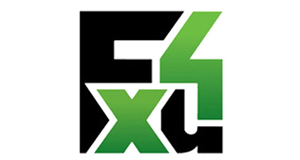The highlight of Wednesday’s session will be the release of the US October core PCE deflator, expected at 0.3% MoM. Even though the market has largely moved on from the US inflation story, a sticky reading will add to doubts that the Fed needs to cut in December after all. Expect the dollar to largely hold recent gains, although month-end selling remains a risk
USD: Sticky Inflation to Keep Market Guessing Over Fed Rate Cuts
The US dollar remained reasonably bid on Tuesday as markets digested the US tariff news, while news of a peace deal between Israel and Hezbollah has not affected the market much. Apart from the understandable pressure on the Mexican peso and US car producers with facilities south of the border, there was little impact on the US rates markets. In other words, the inflationary side of potential tariffs has yet to play out in US asset markets.
On the subject of inflation, Wednesday sees the release of the core PCE deflator for October. The 0.3% month-on-month reading may still be a little too high for the Fed’s liking, although such a number is fully discounted on Wednesday. That means the market probably retains its pricing of 15bp worth of Fed cuts in December and also keeps US rate differentials versus the Rest of the World at reasonably wide levels.
We are bullish on the dollar and note that today’s US data set, including confirmation of US third-quarter GDP at 2.8% quarter-on-quarter annualized, will be the last in this holiday-shortened week. In its entirety, the environment looks dollar-bullish to us. The main downside risk to the dollar this week probably comes from month-end rebalancing flows. Here the huge divergence for dollar-based equity investors of S&P 500 +5.3% month-to-date versus -1.36% for the Eurostoxx 50 or -1.6% for the Nikkei 225 warns of rebalancing dollar sales to raise European and Japanese equity weightings back to benchmarks. These flows could be going through poor liquidity conditions later this week, but any DXY dip to the 106.25/50 area this week should meet good demand.
EUR: Little Reason to Be Cheerful
EUR/USD struggled to rally yesterday despite some US macro data which was not as strong as it could be. Holding the euro back was probably the fallout on the European auto sector on Tuesday as it reacted to the prospect of Trump following through on his pre-election threats. German car maker equity prices were off 3-6% yesterday.
There is not a lot on the eurozone calendar today and the best chance of a EUR/USD move will be on the back of the US inflation data. EUR/USD still looks quite oversold based on its 6-7% two-month drop, which suggests any dip towards the 1.0400/0425 area today could be enough of a decline before any potential month-end rebalancing dollar sales emerge (discussed above).
GBP: Innocent Bystander
With one-week deposit rates at 4.75% and the highest in the G10 space, sterling may be deriving some inflows as the market makes up its mind about the speed and magnitude of Trump’s policy agenda. Additionally, the Bank of England rate profile continues to get traded closer to the Fed than the ECB and suggests sterling should outperform against the euro. We have a year-end EUR/GBP at 0.83 – not too far from current levels.
However, the risk to that forecast probably lies more to 0.82 than 0.84 since the UK is less exposed on the trade side and the BoE has yet to abandon its concern over late-cycle inflation. The BoE’s Chief Economist, Huw Pill, was the latest MPC member yesterday to cite the ongoing focus on service inflation.
CEE: Focus on Bond Auctions Again
Retail and industrial data for October surprised positively in Poland, and today, except for the labour market data, we will have a break in the calendar in the CEE region. However, the focus will shift to government bond auctions in Poland and the Czech Republic. In Poland, the Ministry of Finance has been struggling with low demand for the last few auctions, while the monthly supply of Polish government bonds remains elevated at around PLN25bn due to budget revisions and the plan for next year. Although this year’s borrowing needs are essentially covered according to our calculations, the Ministry of Finance is trying to pre-finance as much as possible for next year, while this year’s state budget may still show some holes at the end of the year when spending is traditionally the highest. Overall, the market will be watching demand in today’s auction and interest in duration, which has been highly volatile in recent weeks.
On the other hand, in the Czech Republic, the Ministry of Finance is still enjoying decent demand despite the higher supply of Czech government bonds (CZGB) in the last three months due to expected flood damage spending. Today, the Ministry of Finance will also issue a EUR-denominated CZGB for the first time in a long time, and we should be able to estimate the remaining CZGB issuance in December based on the success of today’s auction. However, the state budget suggests that spending is rather lower than expected and we may see a significantly lower supply of CZGBs in December while CZK40bn will be due, suggesting a positive end to the year.
In both the Polish zloty and Czech koruna markets, we can expect the usual paying flow in rates coming from hedging for bond auctions. This could support FX, which was already looking for some gains again yesterday with a pause in the USD rally and some repricing of rates in both markets. We still remain bearish on CEE currencies in general due to our EUR/USD view, and thus see the current stronger PLN and CZK as an opportunity for the market to build new short positions rather than a turnaround story.












